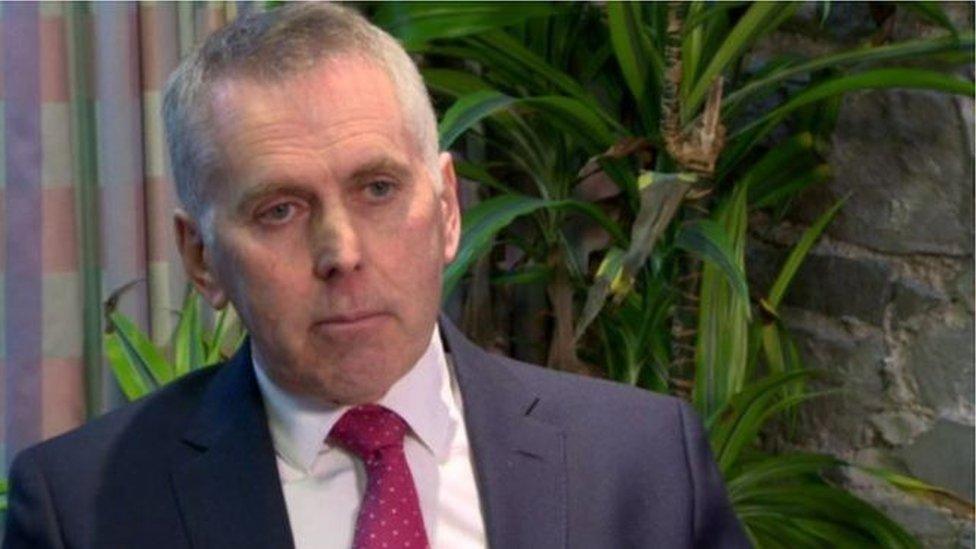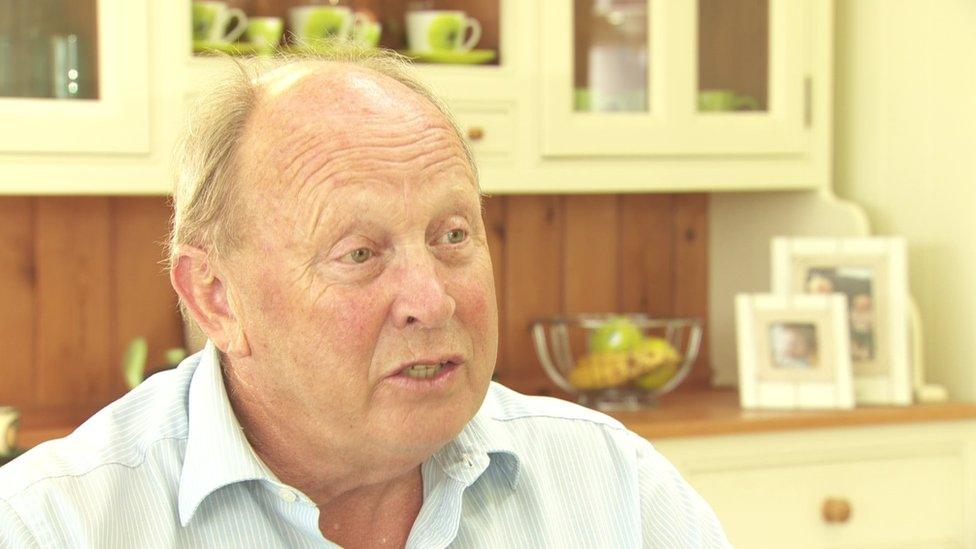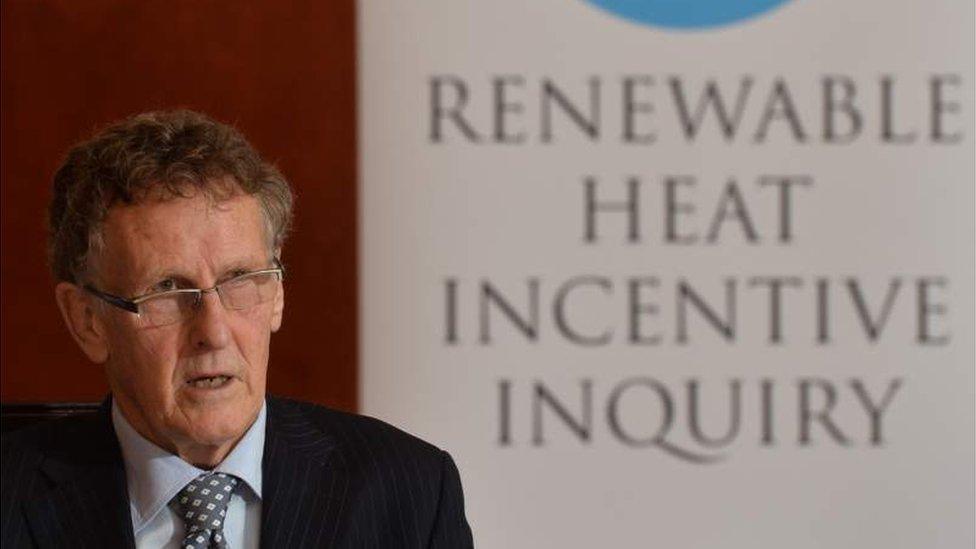Sharp exchanges as MLAs discuss new bill on conduct
- Published

David Sterling is the head of the Northern Ireland Civil Service
The first and deputy first ministers believe standards for ministers and special advisers (Spads) should be set by a code of guidance rather than legislation.
That is according to NI civil service head David Sterling, who was giving evidence to the Finance Committee.
It is considering a bill drawn up by TUV Leader Jim Allister.
The bill is intended to tighten rules governing the conduct of ministers and Spads.
Mr Allister's Functioning of Government (Miscellaneous Provisions) Bill was proposed in light of the behaviour revealed during the hearings of the Renewable Heat Incentive (RHI) inquiry.
Mr Sterling said the ministers' view is that dealing with standards via a code was more in line with practice in neighbouring jurisdictions and around the world.
However, Finance Committee chair Steve Aiken said that in his view Stormont would not be where it is if the previous codes and guidance had not completely failed.
The bill's author, Mr Allister, argued that it did not have to be "all duck and no dinner" and his legislation could operate in parallel with a Ministerial Code of Conduct.

Jim Allister drew up the legislation after the RHI Inquiry
There was a sharp exchange when the South Down MLA Jim Wells invited Mr Sterling to agree with his assessment that the special advisers from all the Stormont parties had behaved in an "utterly appalling" way under the previous administration.
Mr Sterling told Mr Wells - who is no longer part of the DUP's assembly group - that he preferred to look forward rather than be drawn back into the controversy over the RHI scandal.
Mr Wells pressed Mr Sterling on what he knew about a second tier of special advisers operating from west Belfast, and asked for a categorical assurance this practice is not continuing currently at Stormont Castle.
Mr Sterling said he has seen nothing of that nature and when he did not respond directly to questions about whether he had been aware of the second tier of Spads, Mr Wells claimed Mr Sterling was "hiding".
There was another heated exchange when the DUP MLA Paul Frew suggested that there could be occasions on which a special adviser was in fact a minister's "line manager" because - in his words - one of the parties in the Stormont coalition remained wedded to a paramilitary force with an Army Council.
Sinn Féin's Maolíosa McHugh strongly objected to this comment, insisting it was a "despicable" slur and a "slanderous allegation" aimed at his party.
Mr McHugh insisted Sinn Féin is not wedded to a paramilitary force but is a political party committed to the peace process in every respect.
SDLP MLA Matthew O'Toole asked Mr Sterling about the way in which Stormont is handling the Covid-19 crisis and whether the two biggest parties still tended to "cook up" decisions between themselves.
Mr Sterling said the first and deputy first ministers were clear that the three other parties in the coalition should be given their place.
He added that, whilst a five-party coalition involved unique challenges, he had seen executive ministers, special advisers and civil servants working very well together to try to combat the threat of coronavirus.
- Published13 March 2020

- Published13 March 2020
